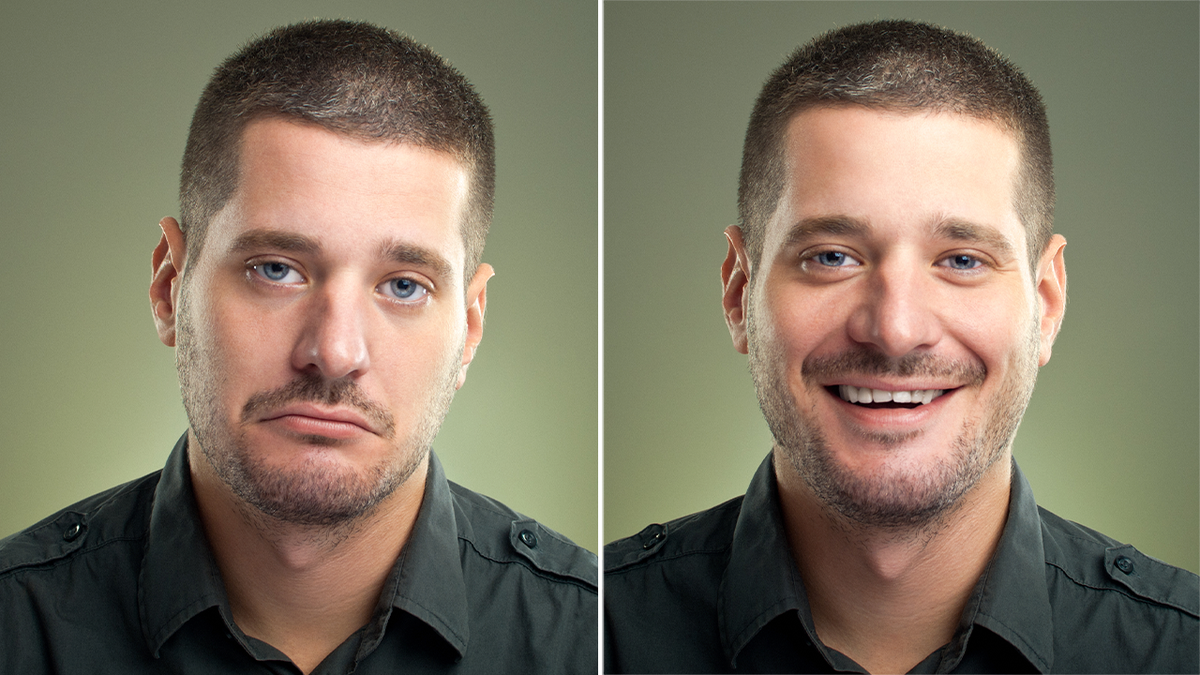Health
Sleep problems worsen during the winter, US adults say in new survey

Six in 10 Americans say their sleep routines feel different during the winter than in other seasons.
That’s according to a survey of 2,000 U.S. adults, commissioned by Mattress Firm and conducted by OnePoll between Sept. 26 and Sept. 29, as reported by SWNS.
Respondents are also more willing to make sacrifices for better sleep. Nearly half of Americans would give up the internet for a year if only they could get better slumber at night.
SLEEP DEPRIVATION COULD RELIEVE DEPRESSION BUT ONLY TEMPORARILY, SAYS STUDY, AS DOCTORS SHARE WARNINGS
Another 43% would trade their phone, 41% would give up their car and 37% would pass up a job promotion.
How winter impacts sleep
The recent end of daylight saving time could have something to do with people’s willingness to make sacrifices for extra sleep — 48% of survey respondents said they feel tired earlier, while 41% move up their bedtimes when it gets dark earlier.
Half of Americans would trade a year of internet access in exchange for better sleep, according to a recent survey of 2,000 U.S. adults. (iStock)
Nearly four in five of the participants (78%) said they can discern when their circadian rhythm is thrown off.
A quarter of people said it is most difficult to wake up during the winter compared to any other time of year.
KIDS’ SLEEP PROBLEMS COULD BE INHERITED, NEW RESEARCH SUGGESTS
Additionally, winter tends to make people feel especially tired (21% of respondents) or sad (20%), the survey found.
“It’s truly remarkable how keenly attuned we are to the impact of circadian rhythm disruptions, particularly when they stem from the change in seasons and length of daylight,” said Dr. Jade Wu, sleep advisor at Mattress Firm in North Carolina, as reported by SWNS.

Among the survey respondents, 40% said they have been diagnosed with seasonal affective disorder (SAD), while a total of 53% believe they have it. (iStock)
“Our bodies’ acute awareness of these changes serves as a reminder of the intricate connection between our internal clocks and the external environment.”
Among the survey respondents, 40% said they have been diagnosed with seasonal affective disorder (SAD), while a total of 53% believe they have it.
LACK OF SLEEP IS COMPROMISING THE MENTAL HEALTH OF 78% OF ADULTS, SURVEY FINDS
Among the most commonly cited “winter feelings” were apathy (32%), general discontent (32%), loneliness (29%), mood swings (28%), loss of interest (26%), anxiety (22%), sadness (16%), excess sleepiness (15%) and fatigue (10%).

Winter tends to make people feel especially tired (21% of respondents) or sad (20% of respondents), the new survey found. (iStock)
Those despondent feelings appear to negatively impact sleep, with 49% of people burrowing under blankets, 48% not sleeping as long as they should and another 48% finding themselves tossing and turning.
CLICK HERE TO SIGN UP FOR OUR HEALTH NEWSLETTER
“Winter often comes with a gloomy feeling because it’s a prolonged lull in daytime activity levels, which can also make your nights less restful,” continued Wu, per SWNS.
“One of the best things you can do for your body is to get active during the day and give it a relaxing environment for sleep.”
OnePoll conducts quantitative research and runs online surveys, its website details.
For more Health articles, visit www.foxnews.com/health.

Health
Is Low-Fat or Low-Carb Better for Weight Loss? Experts Settle the Debate

Use left and right arrow keys to navigate between menu items.
Use escape to exit the menu.
Sign Up
Create a free account to access exclusive content, play games, solve puzzles, test your pop-culture knowledge and receive special offers.
Already have an account? Login
Health
Weight loss, diabetes drugs can cause mood changes: What to know about behavioral side effects

GLP-1 receptor agonists (GLP-1 RAs), medications that help control type 2 diabetes and obesity, can have a profound impact on physical wellness – but what about mental health?
Some examples of these medications include semaglutides, such as Ozempic and Wegovy, and liraglutide, like Victoza and Saxenda.
Various studies have pointed toward GLP-1 RAs causing mental health complications, such as anxiety and depression.
WEIGHT-LOSS DRUGS’ IMPACT ON CANCER RISK REVEALED IN NEW STUDY
The National Institutes of Health (NIH) published research in June 2024 that considered the correlation between semaglutide therapy and “exacerbating mood disturbances.”
The study highlighted the association of negative mood changes in patients with type 2 diabetes with a history of depression, warning healthcare providers to be aware of this “potential risk.”
Studies have debated the correlation between GLP-1 RA drugs and mood changes. (iStock)
But a more recent study, published in the journal Diabetes, Obesity and Metabolism, suggested that these mood changes were linked to genetic variations across diverse populations and ancestries within the U.K. Biobank.
While GLP-1 RA variants had “consistent cardiometabolic effects” across all groups, the researchers said the negative impacts on mental health were “more varied,” concluding that any behavioral changes are “likely not acting directly through [the medications].”
SEMAGLUTIDE FOUND TO HAVE SHOCKING BENEFIT FOR LIVER DISEASE PATIENTS IN NEW STUDY
Doctors weigh in on medications and mood
Dr. Brett Osborn, a Florida neurosurgeon who often prescribes GLP-1 RAs to his patients, believes that there is “no consistent causal relationship” between these medications and mental illness.
“Researchers assayed genetic markers across almost half a million people from different backgrounds in search of a link between the gene behind GLP-1 receptors and mental health problems like depression, anxiety or suicidal ideation — and they didn’t find it,” he summarized.

GLP-1 receptor agonists have been linked to mood changes, patients and doctors have reported. (iStock)
People who are obese or battling type 2 diabetes are “often already depressed” without the medication, the doctor pointed out.
“These conditions take a toll – physically, emotionally and socially,” he said. “So, yes, a large portion of patients starting GLP-1 drugs are already dealing with mental health struggles. But that’s not because of the drug — that’s because of the disease.”
HERE’S WHY BELLY FAT IS MORE COMMON AS WE AGE, AND 3 WAYS TO PREVENT IT
Once these individuals begin dropping weight, blood sugar stabilizes and energy improves, which usually lifts their mood as well.
“GLP-1 drugs help people reclaim their health,” Osborn noted. “They reduce inflammation. They lower blood sugar. They shrink waistlines.”
“And when people look and feel better, when their bodies finally start working for them instead of against them, they often smile more, not less.”

“GLP-1 drugs help people reclaim their health,” one doctor said. “And when people look and feel better, when their bodies finally start working for them instead of against them, they often smile more, not less.” (iStock)
Dr. Muhammad Ghanem, a bariatric surgeon at Orlando Health Weight Loss and Bariatric Surgery Institute, shared in a separate interview with Fox News Digital that while some of his patients have reported mood changes, others “don’t have that at all.”
FIRST GLP-1 PILL FOR WEIGHT LOSS, DIABETES SHOWS SUCCESS IN LATE-PHASE TRIAL
“Depression or mood changes are very common regardless, especially nowadays, and so it’s hard to [determine] whether this is related to the GLP-1 agonist medications, or whether it just happens to be that they started suffering from these after they started that medication,” he said.
“It’s really hard to tell whether it’s a personality change that can happen because of weight loss or if it’s a side effect because of mood changes,” he added. “I don’t think we have enough data to reach that conclusion yet.”

For those who are interested in GLP-1 RA medications or are experiencing mood changes while taking them, an expert stressed the importance of keeping in close contact with medical providers. (iStock)
Patients who lose weight with GLP-1 RAs can experience a “big boost” in confidence, as well as a change in personality and even relationships, according to Ghanem.
“It really depends on the person and the support system they have,” he said. “You need proper, randomized controlled trials to reach a conclusion, and better studies to determine whether this is related to the medication itself or just weight loss.”
“It’s important for all doctors who prescribe these drugs to be aware and check the patient’s history.”
For those who are interested in these medications or are experiencing mood changes while taking them, the surgeon stressed the importance of keeping in close contact with medical providers.
“Just like any other medication, they can have potential side effects,” he said.
Ghanem recommended seeking out professionals and practices who take a “holistic approach” to weight loss, offering mental health support in addition to medication.
Dr. Brunilda Nazario, MD, chief physician editor of medical affairs at WebMD, told Fox News Digital that “obesity is complicated.”
“Obesity specialists … are cautiously excited about how well these drugs work,” she said.
CLICK HERE TO SIGN UP FOR OUR HEALTH NEWSLETTER
“With current studies showing conflicting results on mood disorders and the use of GLP-1 drugs, it’s important for all doctors who prescribe these drugs to be aware and check the patient’s history before prescribing [them].”

“Don’t be afraid to ask for help if you feel something is not right — your health depends on it,” one expert suggested. (iStock)
Nazario stressed that it’s “vital” for GLP-1 RA users to listen to their bodies, urging them to pay attention to their feelings and know the symptoms of mood disorders.
“Don’t be afraid to ask for help if you feel something is not right — your health depends on it,” he added.
For more Health articles, visit www.foxnews.com/health
Nazario noted that GLP-1 RAs can affect mood in many different ways.
“They are not all negative — they have the potential to improve mood as well,” she said. “Just seeing great results can boost self-esteem, confidence and body image.”
Health
How to Access GLP-1 Medications After FDA New Rules | Woman's World

Use left and right arrow keys to navigate between menu items.
Use escape to exit the menu.
Sign Up
Create a free account to access exclusive content, play games, solve puzzles, test your pop-culture knowledge and receive special offers.
Already have an account? Login
-

 Austin, TX1 week ago
Austin, TX1 week agoBest Austin Salads – 15 Food Places For Good Greens!
-

 Technology1 week ago
Technology1 week agoNetflix is removing Black Mirror: Bandersnatch
-

 World1 week ago
World1 week agoThe Take: Can India and Pakistan avoid a fourth war over Kashmir?
-

 News1 week ago
News1 week agoReincarnated by A.I., Arizona Man Forgives His Killer at Sentencing
-

 News1 week ago
News1 week agoWho is the new Pope Leo XIV and what are his views?
-

 News1 week ago
News1 week agoEfforts Grow to Thwart mRNA Therapies as RFK Jr. Pushes Vaccine Wariness
-

 Entertainment1 week ago
Entertainment1 week agoReview: 'Forever' is a sweet ode to first love (and L.A.) based on Judy Blume's novel
-

 Politics1 week ago
Politics1 week agoDepartment of Justice opens criminal investigation into NY AG Letitia James















